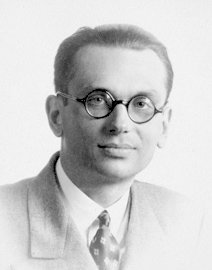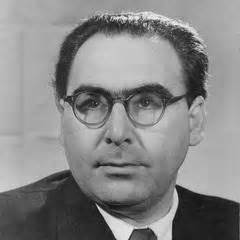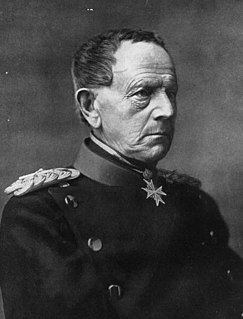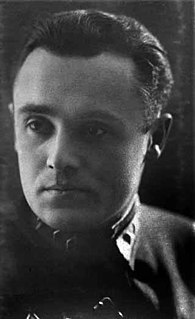A Quote by Kurt Gödel
The development of mathematics toward greater precision has led, as is well known, to the formalization of large tracts of it, so that one can prove any theorem using nothing but a few mechanical rules... One might therefore conjecture that these axioms and rules of inference are sufficient to decide any mathematical question that can at all be formally expressed in these systems. It will be shown below that this is not the case, that on the contrary there are in the two systems mentioned relatively simple problems in the theory of integers that cannot be decided on the basis of the axioms.
Quote Topics
Any
Axioms
Basis
Below
Cannot
Case
Conjecture
Contrary
Decide
Decided
Development
Expressed
Few
Greater
Inference
Integers
Known
Large
Led
Mathematical
Mathematics
Mechanical
Mentioned
Might
Nothing
On The Contrary
Precision
Problems
Prove
Question
Relatively
Rules
Shown
Simple
Sufficient
Systems
Theorem
Theory
Therefore
Toward
Two
Using
Well
Well Known
Will
Related Quotes
Can the difficulty of an exam be measured by how many bits of information a student would need to pass it? This may not be so absurd in the encyclopedic subjects but in mathematics it doesn't make any sense since things follow from each other and, in principle, whoever knows the bases knows everything. All of the results of a mathematical theorem are in the axioms of mathematics in embryonic form, aren't they?
An axiomatic system comprises axioms and theorems and requires a certain amount of hand-eye coordination before it works. A formal system comprises an explicit list of symbols, an explicit set of rules governing their cohabitation, an explicit list of axioms, and, above all, an explicit list of rules explicitly governing the steps that the mathematician may take in going from assumptions to conclusions. No appeal to meaning nor to intuition. Symbols lose their referential powers; inferences become mechanical.
The classes of problems which are respectively known and not
known to have good algorithms are of great theoretical interest. [...]
I conjecture that there is no good algorithm for the traveling
salesman problem. My reasons are the same as for any mathematical
conjecture: (1) It is a legitimate mathematical possibility, and
(2) I do not know.
There are and can be only two ways of searching into and discovering truth. The one flies from the senses and particulars to the most general axioms, and from these principles, the truth of which it takes for settled and immovable, proceeds to judgment and to the discovery of middle axioms. And this way is now in fashion. The other derives axioms from the senses and particulars, rising by a gradual and unbroken ascent, so that it arrives at the most general axioms last of all. This is the true way, but as yet untried.
I think mathematics is a vast territory. The outskirts of mathematics are the outskirts of mathematical civilization. There are certain subjects that people learn about and gather together. Then there is a sort of inevitable development in those fields. You get to the point where a certain theorem is bound to be proved, independent of any particular individual, because it is just in the path of development.
It cannot be that axioms established by argumentation should avail for the discovery of new works, since the subtlety of nature is greater many times over than the subtlety of argument. But axioms duly and orderly formed from particulars easily discover the way to new particulars, and thus render sciences active.
The constructs of the mathematical mind are at the same time free and necessary. The individual mathematician feels free to define his notions and set up his axioms as he pleases. But the question is will he get his fellow mathematician interested in the constructs of his imagination. We cannot help the feeling that certain mathematical structures which have evolved through the combined efforts of the mathematical community bear the stamp of a necessity not affected by the accidents of their historical birth.
Strategy is a system of makeshifts. Is is more than a science. It is bringing knowledge to bear on practical life, the further elaboration of an original guiding idea under constantly changing circumstances. It is the art of acting under the pressure of the most demanding conditions...That is why general principles, rules derived from them, and systems based on these rules cannot possibly have any value for strategy.
The further conquest of space will make it possible, for example, to create systems of satellites making daily revolutions around our planet at an altitude of some 40,000 kilometers, and to assure universal communications and the relaying of radio and television transmissions. Such an arrangement might prove more useful, economically, than the construction of radio relay systems over the whole surface of the earth. The great accuracy of movement of these satellites will provide a reliable basis for solving navigational problems



































